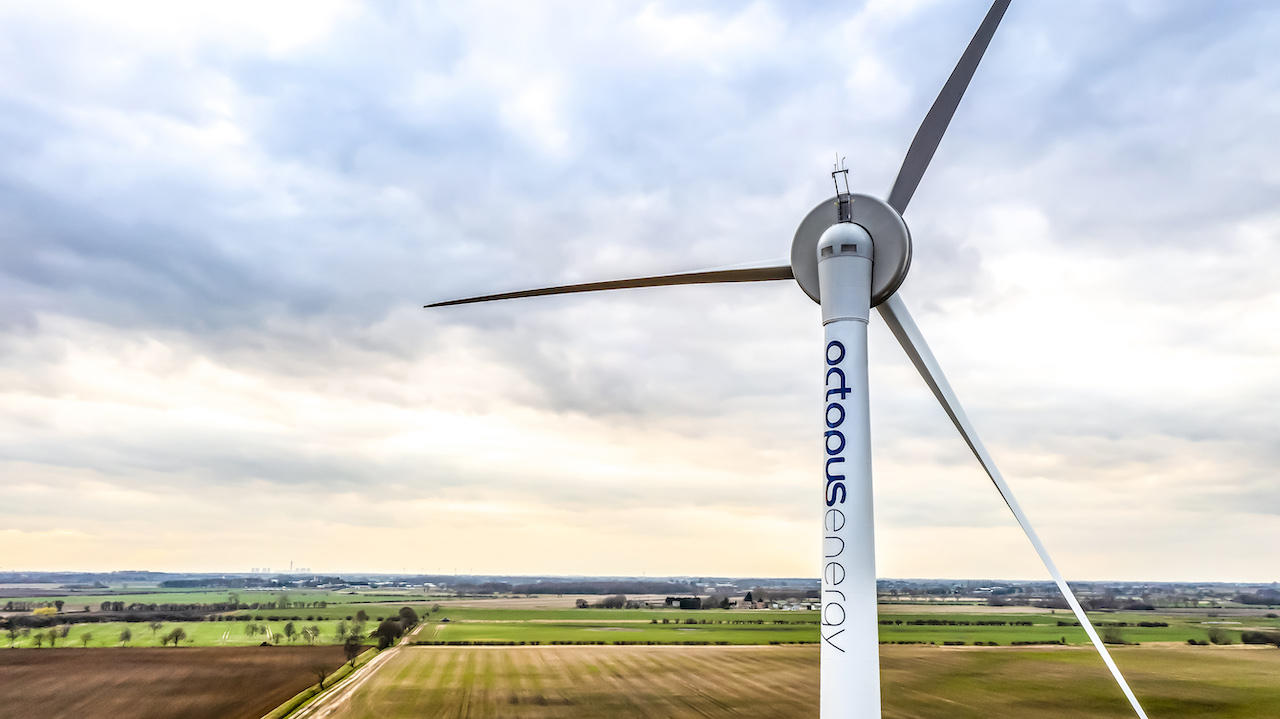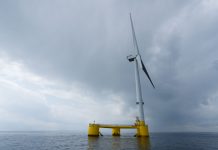The founder of the UK’s biggest all-renewable energy retailer warmly welcomed chancellor Kwasi Kwarteng’s promise this morning to ease planning requirements on onshore wind farms.
Greg Jackson, boss of Octopus with 2 million home accounts, reckons the step could open up more building of new onshore farms in England, after a six year hiatus.
Chancellor Kwarteng, energy secretary until August, alluded to the government’s ‘Growth Plan 2022’ in his near-but-not-quite budget statement delivered to MPs this morning.
The Plan states the government will ‘bring onshore wind planning policy in line with other infrastructure to allow it to be deployed more easily in England’.
With renewable power now as much as nine times cheaper than gas-derived electricity, the blueprint also envisages uncoupling gas’s wholesale cost from other inputs in dictating retail prices for power. Bosses of renewables firms have welcomed the reform.
The Plan envisages an Energy Supply Taskforce including enterprise representatives. With major gas producers, it will negotiate cuts in long-term supply contracts for businesses.
On Kwarteng’s promise to ease planning rules, Jackson enthused that: “This is a huge step which will unleash the power of British onshore wind energy, reducing bills for all”.
Onshore turbines ‘cheap and incredibly popular’
“Octopus Energy will act fast to bring wind farms and lower bills to areas where communities want them.
“Onshore wind is cheap and incredibly popular with Brits”, the Octopus boss went on. ”More than 13,000 people have asked Octopus for a wind farm in their area.
“But unnecessary red tape has meant it has taken on average seven years to build and connect a new onshore wind farm. In reality, they can be built in months”, Jackson asserted.
“By putting onshore wind on the same playing field as other technologies, we can turbocharge our transition to net zero, increase the UK’s energy security, and wean ourselves off expensive gas for good,” he concluded.
Last year Octopus launched its Fan Club, billed as the world’s first local energy tariff from a major supplier. Customers living in the same postcode as an Octopus turbine can benefit when the wind blows by as much as half off their power bills.
Octopus has rolled out a £40 million support package to slash standing charges for households this winter. It claims already to have absorbed £150m of bill increases, and recently doubled its ‘Octo Assist’ financial hardship fund to £15 million, which has already helped over 55,000 people.
Triple reward for home solar exporters
The supplier this week doubled its purchase tariff for households selling spare solar electricity back for use on the grid. The new 15 pence/kWh rate under its ‘Fixed Outgoing’ tariff paid to microgenerators for spare power is three times the sum offered by any rival purchaser to Britain’s one million home generators.
A purchase price for spare home-generated power is mandated under legacy elements of the Feed in Tariff regime, which closed in spring 2019 to new entrants.
Octopus also offer a non-fixed tariff to buy homeowners’ excess generation. Shadowing prices fluctuating every half hour on wholesale markets, the operator’s ‘Agile Outgoing’ price scale rewarded participants over a recent 12 month period with an average 34 pence paid per spare kWh.
In London earlier this year Octopus customers were paid up to £1.29 for every kWh sent back to the grid.
This morning the energy firm’s investment arm delivered a further step in its three-month campaign to build a stake in the offshore 270 MW Lincs wind farm, operating off Skegness.
In a complex deal involving both its investment trust ORIT and the Sky fund of its sister entity Octopus Energy Generation , the company upped its total stake in the wind farm to 23.25%. It was Octopus’ fourth deal since debuting in offshore wind this spring. Terms were not disclosed.




